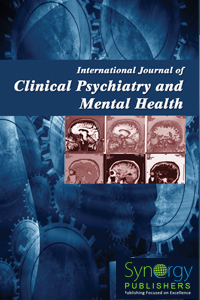
Compulsory Treatment for Anorexia Nervosa in Israel: Clinical Outcomes and Compliance (Pages 20-30)
Zohar-Beja Adit1, Latzer Yael2,3, Adatto Rachel4 and Gur Eitan5
1Clinical Dietitian, Eating Disorders Unit, Sheba Medical Center, Tel Hashomer, Israel; 2Professor, Faculty of Social Welfare and Health Sciences, University of Haifa, Israel; 3Director, Eating Disorders Clinic, Psychiatric Division, Rambam Medical Center, Haifa, Israel; 4Former Member of the Israeli Knesset, MD; 5Director, Eating Disorders Unit, Sheba Medical Center, Tel Hashomer, Ramat Gan, Israel
DOI: http://dx.doi.org/10.12970/2310-8231.2015.03.01.4
Abstract: Objective: Anorexia nervosa (AN) is associated with high morbidity and mortality rates, sometimes requiring compulsory treatment when patients refuse treatment despite life-threatening complications. Compulsory treatment of AN patients involving legal commitment is controversial in Israel, both ethically and legislatively. This study aimed to conduct a comprehensive retrospective examination of patient records to compare compulsory versus voluntary admissions regarding illness severity, admission, hospitalization, and outcomes.
Method: Participants were 51 voluntary and 28 committed patients with severe AN admitted to a major Israeli ED department in 2003-2013. Demographic, clinical, physical, historical, and outcome data were collected through patients’ charts.
Results: No significant group differences emerged between the groups in most variables. Two main differences were found: Committed patients had higher rates of comorbid personality disorders (33% vs. 10%) and significantly more disturbed nutrition patterns (44% vs. 26%) than voluntary patients. The two groups showed similar treatment outcomes in terms of weight gain (M = 9.7 kg), mortality rate (7.6%), and rehabilitation after hospitalization (15.2%).
Conclusions: Results indicate that compulsory treatment may be as beneficial as voluntary treatment, both in the short and long term. After their initial resistance, compulsory patients were found to comply with the treatment and remain in the ED center to the same extent as those admitted voluntarily. Thus, compulsory hospitalization may reduce such patients’ guilt about accepting nutrition and treatment. Compulsory treatment for severe life-threatening AN may save lives and should be implemented more commonly and earlier.
Keywords: Anorexia nervosa, compulsory treatment, Israel, clinical outcome, compliance. Read more

